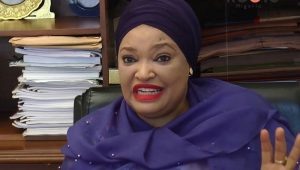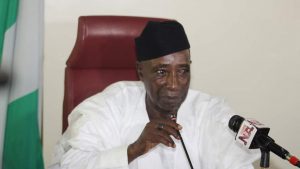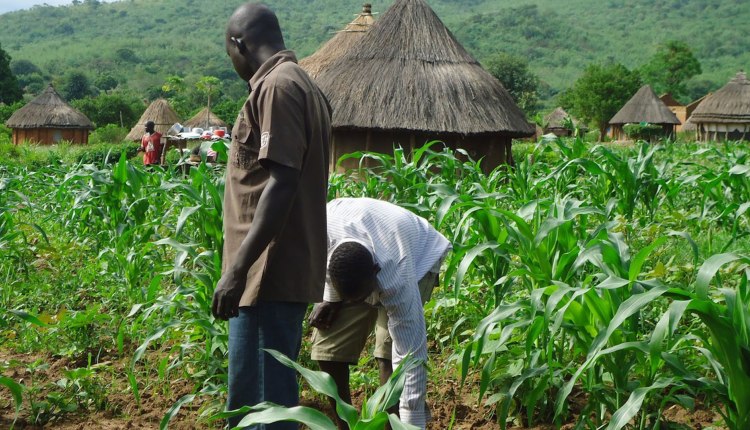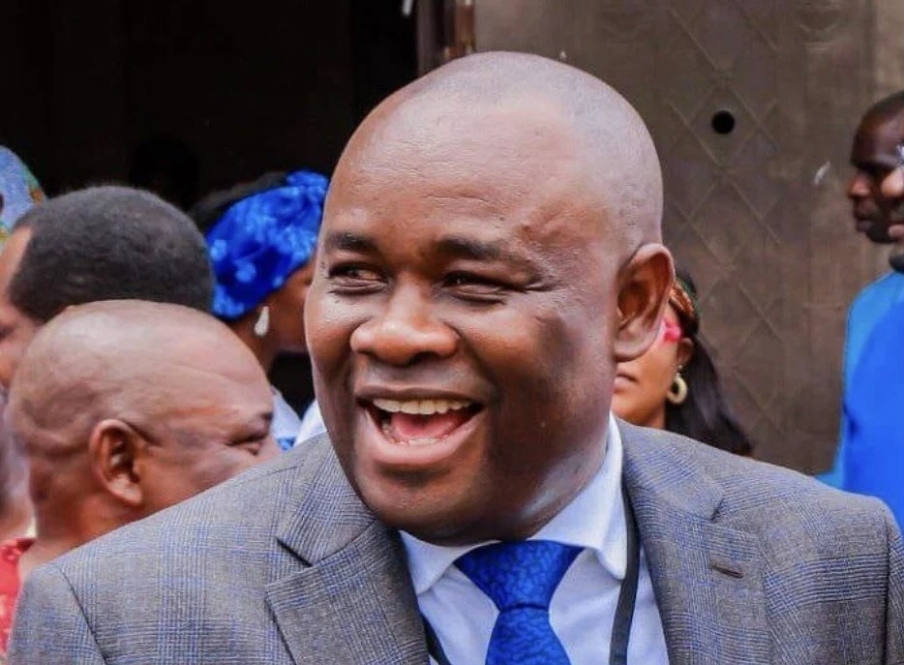A video went viral in November 2020 about a hearing session organised by a committee of Nigeria’s legislative national assembly. Zaheera Ali, the Managing Director of Nigeria’s Commodity Exchange, could list some of the commodities the exchange handles as maize, soya, sesame, cocoa and cashew.
She got stuck, however, when asked about the current price of those commodities in the market. She had no idea. Such is the typical example of the Nigerian agricultural landscape and of high – level policy handlers of agricultural sector now. Pressed further, she said maize was selling for N80,000 in the market when the real users of maize were already complaining that it was selling for over N200,000. Such is the level of apathy of the chief executive of the Commodity Exchange on the basic mandates of her office. She was unable to provide on-the-spot price data on any of the other commodities she mentioned during the hearing.
Zaheera Ali’s case was just a microcosm of official disposition to the agricultural sector all over Nigeria.

The past five years have been a period of gradual downward slide for the food and agriculture sector of the Nigerian economy. The slide was expedited in 2020 by the COVID-19 pandemic and the failure of government to respond appropriately. The crises faced by this sector have been caused by a combination of factors such as policy incoherence and lack of direction, denials of or inadequate and inappropriate responses to unfolding realities, inflation and deteriorating value of naira over the period, infrastructural deficiency and insecurity.
Buhari’s government began with the wrong policy decisions by jettisoning the Growth Enhancement Support (GES) scheme of the preceding administration that was reputed to have helped many poor farmers gain access to inputs at some levels of subsidy. The incoming government dispensed with the national farmers’ database generated by the Jonathan administration that was organised by the Federal Ministry of Agriculture and Rural Development (FMARD) and replaced it with the Agricultural Promotion Policy (APP) of the FMARD and the Anchor Borrowers’ Scheme created and implemented by the Central Bank of Nigeria (CBN). The APP was all but just a feeble attempt at a semblance of policy, without details on direction, details and implementation strategies; and so there were no definite achievements during its four-year span. Reports have shown that the Anchor Borrowers’ Scheme too is bogged down by bad loans and measurement of impacts remains elusive. While the CBN drives such a sectoral policy in which the apex bank is struggling to recover its loan facilities from farmers, FMARD remained in the shadows, overwhelmed with running bureaucratic machinery without any measurable impact of APP on farmers.
The right things could have been done if the Buhari government during the first regime had set out to achieve anything. The APP had no definite intervention programme. It could have achieved something if it had built on recorded progress of the Agricultural Transformation Agenda (ATA) of the Jonathan’s administration. Under ATA, the Growth Enhancement Support (GES) scheme identified smallholder farmers and built a system that gave inputs to the beneficiaries through direct subsidies. “The government could have built on the success recorded on giving input to farmers to sustain recorded progress in the Growth Enhancement Scheme,” observed Celestine Okeke, a lead partner, Small and Medium Enterprise Development Initiative and Associate Consultant for the British Department for International Development (DfID). This is how to develop sectorally and advance the sector’s progress. According to Okeke, “government seems to be scattering the little money it has on the little intervention that is not yielding any fruit.”

Midway into July 2020, the CBN stopped foreign exchange (forex) access for corn imports, adding its importation to the existing “41 banned list.” The decision was officially explained as intended to increase local production, stimulate a rapid economic recovery, safeguard rural livelihoods and increase jobs. The immediate consequence was a supply-demand mismatch, scarcity and an increase in price of maize, from between N70,000 and N80,000 per metric ton to between N165,000 and N175,000 per metric ton after the import restriction and rising up to N200,000 at the end of the year. Feelers from the food and agricultural sector forced the CBN to grant an emergency approval to four agro-processing companies to import 262,000 tons of maize and corn in an attempt to boost supply and fill the gaps created by the shortfall within the country. The companies are Wacot Limited, Chi farms Limited, Crown Flour Mills Limited and Premier Feeds Company Limited. According to an internal memo of the Nigeria Customs Service to that effect, dated August 6, 2020, and endorsed by the deputy Comptroller General (Tariff and Trade), T.M. Isa, “approval is strictly for the four (4) companies listed above and stemmed to the months of August, September and October only.”
The poultry and aquaculture industries have been hard hit by the maize importation restriction policy as the prices of poultry and fish feed have increased subsequently. The leadership of Poultry Association of Nigeria (PAN) raised alarm about imminent jeopardy to their business, particularly the egg production sub-set, a situation made worse by the lingering impact of the COVID-19 lockdown, with many poultry farms on the verge of closing down their operations. These, in turn, have affected their production profit margin and have led to a phenomenal rise in the prices of eggs at the farm gate so much so that the association now has to set its price for eggs across the board. The price of a crate of 30 eggs has risen from about N800 to N1,100 within these past couple of months as a result. Before this time, egg producers have recorded enormous losses due to their inability to move their eggs to the market during the lockdown. That prompted many farmers to cut down their birds’ population to reduce the cost of feeding. The decision is projected to lead to further scarcity of eggs in 2021 unless farmers shore up by raising more layers.
The outcry of farmers generally for recognition as essential services providers came as a result of the neglect of farmers during the COVID-19 national lockdown, which restricted the movement of all stakeholders in agriculture, including input providers, crop farmers, live animal producers, processors and marketers. The federal government’s belated response came on May 29, 2020, during an event in Kano where the Minister of Agriculture and Rural Development, Sabo Nanono, said that “Joint Technical Task Teams (JTTT) at national and state levels” have “developed strategies to facilitate free movement of food and agricultural inputs exempted from lockdown.” At the event, Nanono also said that the government was “also planning ahead with research institutions to produce breeder and foundation seeds for production of high yielding seeds for 2020 wet and dry season as well as 2021 rainy season.” The Buhari government’s poor sectoral policy on agribusiness is already taking its toll on food prices, which is already too high. It is happening at a time Nigeria’s poverty rate is climbing to nearly 50 per cent due to the ‘command-style’ economic management by the current government, bleak oil future with no viable alternative source of national revenue and a pandemic that has continued to ravage the world. It also coincides with a period of 56 per cent unemployment and underemployment, according to the National Bureau of Statistics (NBS), with 14 million jobless youths agitating for a better life.
On Tuesday, December 29, 2020, at the fifth regular meeting with the Presidential Economic Advisory Council in Abuja, President praised his administration’s border closure policy, saying that it has helped the country in agricultural productivity. According to him, “already about seven states are producing all the rice we need.” Observers from major markets, however, debunk his claim of ending rice importation or the effectiveness of border closure in curbing rice importation officially or unofficially as foreign rice still flood the market. The average prices of key staple foods across major cities in the country have surged by over 50 per cent in the last one year, causing food inflation to hit 16.6 per cent in September – the highest in 30 months.

Surveys at some markets in Lagos, Abuja, Port Harcourt and Onitsha show that a 50kg bag of local parboiled rice sold for an average of N17,000 in July 2019, now sells for an average of N28,000, indicating a 65 per cent increase. Similarly, a 50Kg bag of foreign rice, which was sold for an average of N14, 000 before the border closure, now goes for N32,000 at Lagos markets, a 129 per cent increase in 14 months. In Onitsha and Aba, South-East Nigeria, a 50kg bag of rice goes between N28,000 and N35,000 today. Although Buhari considered his border closure policy a success, Haruna Mohammed, a tomato seller at Mile 12 Market in Lagos, disclosed that “food prices started galloping when the government shut down the borders last year.” He added that “the pandemic further quickened (the) rise in food prices and, now, the looting and curfew are fuelling another increase.” He explained that curfew imposition in some states has worsened the situation, thus causing scarcity of food items as only a few commodities find their ways to markets in those regions.
Insecurity of varying degrees all across the various geo-political zones has negatively affected agriculture and food production since the past couple of years, with unprecedented increase in 2020. The killing of 43 farmers in Borno State at the end of November 2020 added another twist to the insecurity in the state in which three local governments have already been deserted in response to Boko Haram scare. The impact of Boko Haram terrorists on agriculture and food security has widened as more hitherto peaceful states in the north-west are no longer safe or secure because of the frequent cases of banditry and insurgency in Katsina, Zamfara, Sokoto and Kaduna states, mostly in the rural farming communities. “Traders and farmers in the north are afraid that looters will attack their trucks and loot their produce, so they are reluctant to take food items to the south-west, south-east and south-south regions,” Haruna Mohammed further said. In the north, the story is similar as the burning down of markets and looting of warehouses of businesses led to rises in food prices, a market leader in Abuja noted. The recent disruptions from #ENDSARS protest that took a violent turn in many places have led to the fastest yearly rise in food prices despite the rising rates of poverty in Nigeria.
“No matter how much you take to the market, you still cannot buy anything because prices have kept escalating,” said Ronke Ademola, a teacher and a mother of two. “The government is not even doing anything to address the issue of food price hikes,” she complained. The economy has been in shambles and GDP per capita has been declining every year since 2016, a sign that the economy is unable to provide sufficient opportunities for its rapidly growing population. Nigeria’s GDP fell by six per cent in the second quarter of 2020, but there is yet no clear-cut plan to eliminate poverty and unemployment. “It has been difficult for Nigerians, and purchasing power keeps eroding. People can hardly feed properly owing to the current economic situation we are experiencing,” lamented Abiodun Olorundenro, manager of Aquashoots, an agro-venture. The border closure policy of the federal government has been roundly criticised as one that has significantly failed to improve local production, but has enriched few who are benefitting at the majority of consumers’ expense.
Although Buhari has just ordered that the CBN “must not give money to import food” in 2021, promising to watch food inflation in the year ahead, the positive impact of the partial re-opening of the land borders recently instructed by the President are yet to be felt as prices of staples remain high during the Yuletide season. The Lagos Chamber of Commerce and Industry has earlier asked the federal government to re-open the Nigeria-Benin b order to cut rising prices and poverty. But the federal government has been slow despite the knowledge that the African Continental Free Trade Area (AfCFTA) has been scheduled to start trading in January 2021. “The best bet for Buhari is to re-open the border to allow free flow of goods and food. Then, make local producers competitive. You do not make them competitive by shutting the borders, because you are shielding them from competition, which is a bad strategy. If you close the border till 2025, there is no evidence that local production will rise,” one analyst said.
The foreign exchange management has also attracted criticism from several quarters. With oil price lows, foreign exchange inflows have declined by over 40 per cent in the last two years, resulting in acute dollar scarcity in the economy. However, the government has focused on the demand side, which has led to worsening scarcity that has further widened inflation and inequality. “We believe demand management strategies alone are not sustainable solutions to the recurring foreign exchange crises. It is thus imperative to address supply side issues. This could be policy related and could also be related to fixing the structural factors impeding output and competitiveness in the economy,” Toki Mabogunje, president of the LCCI, said in Lagos recently.
The Federal Ministry of Agriculture and Rural Development (FMARD) has reportedly performed far below expectation. Stakeholders’ assessment of the performances of the Minister Sabo Nanono on policies, programmes and impact have been described as lacklustre as the agricultural sector continued to be characterised by policy somersaults. Under Nanono, allegations are that there is no clear cut path of direction and policy thrust for the sector as farmers and investors are yet to identify the direction of his leadership. After assuming the office, Nanono announced a new policy direction that focused on mechanisation, agricultural extension services, staple crop processing zones, the Livelihood Improvement Family Enterprise (LIFE), a carry-over programme from Audu Ogbeh’s tenure, earlier designed to directly empower approximately 3,000,000 rural youths and women in on-farm and off-farm value chain, in response to the limited readily available options for the “disadvantaged” youth and women in the rural and suburban communities nationwide from 2016 to 2019 to improve their means of livelihood and help them to live decent lives. An estimated 14,000,000 metric tons of foods is projected to be added to national production through the LIFE programme.
Nanono also listed another programme called ‘Zero-Reject’ as part of the policies to be pursued. The policy which is expected to concentrate on Quality Control and Standardisation, was also inherited from his predecessor, Audu Ogbeh. Some stakeholders in the sector have given their assessment of the highlighted policies and programmes inherited by, or initiated and launched under the Nanono leadership of the agricultural sector. Emmanuel Ijewere, vice president, Nigeria Agribusiness Group (NABG), said that “a mentality that the federal government officials are the farmers in Nigeria… is absolutely wrong.” In Ijewere’s observation, “the farmers themselves are never consulted about anything and farming is not done in Abuja, not even in the state capital. How are the local governments involved in this plan?
Another one is the federal government awarding huge contracts to bring in tractors many years ago; and where are the tractors?” He referred to earlier “efforts” made by Dr Akinwunmi Adesina, former Minister of Agriculture, to change this narrative. A source that preferred anonymity said the mechanisation campaign has not made any meaningful impact in agricultural productivity of farmers. “I haven’t really seen any impact of the Agric Ministry under this current administration.” That source added “the ratio of tractors to farmers is very small. So there is still a huge gap. The industry needs more players in this space that can provide farmers with tractors at an affordable rate.”
He was critical of the way Nanono was handling the tractor hiring system, pointing out that is not supposed to be operated by government. “Unless you have a minimum of 250 hectares of land it is stupid and foolhardy for you to even own one tractor. It is purely private sector affair. Lease the tractor from those who are experts in running it. It is a private sector activity, it is not government activity. Give them opportunity to do so,” Ijewere advised. For “these tractor hiring companies, let us have agreement with them. Give them loans at low interest rates. Let them own, manage, borrow money to finance the equipment and lease it out to these various farmers. Then it is sustainable and anything you do, that is government give-away, is not sustainable,” he stressed. He particularly disagreed with emphasis on award of contracts and programmes that lack sustainability components. “Nigeria’s agriculture should be based and founded on sustainability and not one-off, award contracts and after one year the tractors are dead and you abandon them,” he said.
The agricultural sector under Buhari’s government was also criticised for not operating based on data. “Do they have the data of how many farmers there are per local government? What are they planting? The tractor you need to plant sweet potato in an individual’s farm is not the same tractor you will need for a maize farm or palm tree farm. These are issues to be discussed by the people who are the operators and who have no say in policy formulation. Let the private sector be the driver of agriculture. I only read about L.I. F.E. on the pages of newspapers and television. Do they talk with the farmers? The farmers are not being carried along. Farmers are dedicated and hard-working, and just need encouragement.” On Zero Reject, Ijewere added that “the goods are being exported by private sector people. Government does not export cocoa. Companies export cocoa. Government does not export ginger. Companies export ginger. Global GAP was put together by the private sector in Europe and the Americas, and the Global GAP itself is supposed to be established in Nigeria but what has happened is that it has become a government agency and those people don’t recognize government agencies. What we are asking the government to do is to create the enabling environment and stop running these things.”
Ijewere expressed worries, saying “the danger here is that The African Continental Free Trade Area (AfCFTA), will soon to happen and other countries are putting their house together. We are still having government in front and not allowing the private sector to lead.” He predicted that “we will still have the rejection of our agricultural commodities absolutely because we don’t understand the cause of the rejection. All this incoherence in Nigeria ends up in rejection of their commodities abroad. But Nigeria that is expected to lead the way regionally in agriculture seems to be undergoing some embarrassing setback. In August 2020, Nigeria resorted to borrowing of food in storage from the Economic Community of West Africa States (ECOWAS). According to a report credited to the Minister of State for Agriculture and Rural Development, Mustapha Baba Shehuri, the federal government borrowed a total of 5,000 metric tonnes of assorted grains from the food stock of the ECOWAS. Shehuri, while receiving the 3,999 tonnes of cereals donated to the federal government by ECOWAS with its donors and financial partners, at Hotoro Grain Depot, in Kano State, acknowledged the incessant worrying food crisis in the West African sub-region, especially in the Sahel.
Adu Yarima Charles, CEO and founder of Just Global Social Development Initiative (JUGSODI), observed that “the resuscitation and strengthening of the Nigerian economy is one of the pillars on which the input of good governance can transcend formal sub-national and informal entities; hence the focus of the current administration on the agricultural sector with an annual import bill of over $5 billion as at 2015, 20 per cent of which was channelled to rice importation.” According to Adu, “this current administration’s willingness to ensure the agricultural sector is mechanised (by) focusing on tractors sounds good to hear. But the question that came into my mind was: do we have on ground what it takes to mechanise the agricultural sector? How many small-scale farmers who are the ones that are actually feeding the nation have the capacity to acquire tractor to grow mechanised produces, just but to mention a few? As sound as the policy of government may be in respect to this pronouncement, it will end in the hands of their political associates while the real farmers pay more to access the same facility which should have gone to them directly but (were) short changed.”
On the LIFE programme, Adu said, “I am yet to see any implementation, not to talk of impact. This can only be effective and reality if government first recruits agricultural extension officers. If the professionals are not there, how can that be achieved? Extension is paramount to the success of this programme. Government should try to do things differently by undertaking policy formulation based on felt needs, sustainability and ownership, which will ensure compliance and tracking of progress. Adu concluded that “projects and programmes of government should not be tagged only to politics. Government should be seen working closely with Civil Society Organisations that are accountable, to reach out to the real targeted farmers, especially the small-scale farmers.”
























Leave a comment